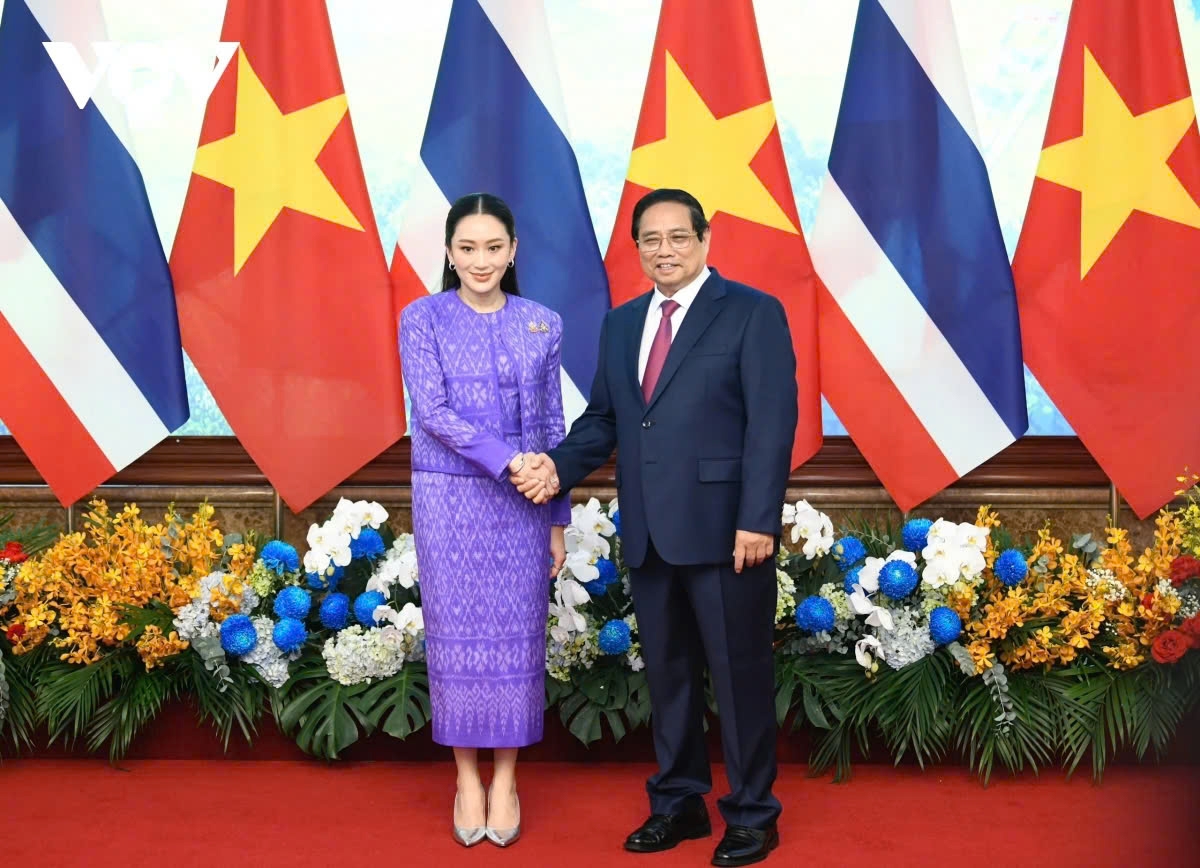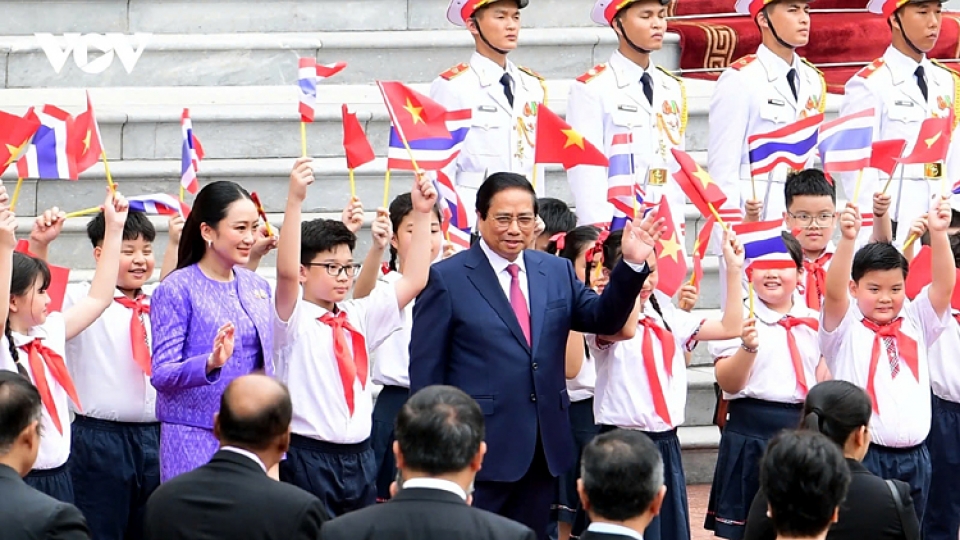Vietnam and Thailand elevate ties to Comprehensive Strategic Partnership
VOV.VN - Vietnamese Prime Minister Pham Minh Chinh and Thai Prime Minister Paetongtarn Shinawatra agreed to upgrade relations between the two countries to a Comprehensive Strategic Partnership at the fourth joint Cabinet meeting in Hanoi on May 16.

Chinh expressed his pleasure at welcoming the Thai Prime Minister to the joint Cabinet meeting, which he hoped would provide an opportunity for both sides to exchange views and agree on practical and effective measures to further enhance and elevate the bilateral relationship to a new, more substantive, effective, deeper, and comprehensive level.
Such progress would bring great benefits to both countries and peoples, while also contributing to strengthening solidarity, peace, and cooperative development within ASEAN, he noted.
Meanwhile, Paetongtarn highlighted the unique and strategic nature of the relationship between Thailand and Vietnam. She emphasised that Thailand only holds Joint Cabinet Meetings (JCMs), a high-level bilateral government meeting, with neighbouring countries, and for Vietnam, it is held exclusively with Thailand.
According to the female PM, Thailand and Vietnam consider each other priority partners in the region, and beyond economic or political cooperation, there are cultural, geographic, and historical ties that connect the two countries.
At the meeting, the two sides agreed to promptly develop an action programme to implement the new partnership framework for the 2025-2030 period. Accordingly, they will enhance high-level exchanges, beginning with arranging a visit to Vietnam by the King and Queen of Thailand, as well as a visit to Thailand by Party General Secretary To Lam at an appropriate time.
At the same time, the two sides will strengthen cooperative mechanisms, particularly the Joint Cabinet Meeting mechanism and the Vietnam-Thailand Joint Committee on Bilateral Cooperation.
The two sides vowed to promote and expand cooperation in areas such as maritime security and safety, defence industry, logistics, military medicine, search and rescue, border management, and military exchanges. They also committed to enhancing cooperation in combating transnational crimes, especially drug trafficking, human trafficking, and cybercrime, reaffirming their commitment to preventing any individual or organisation from using their territories against each other.
The two sides also agreed to further integrate their economies through the Three Connectivity Partnership Strategy, which focuses on connecting supply chains, connecting businesses and localities, and aligning sustainable growth and green growth strategies between the two countries.
They will also enhance infrastructure connectivity, especially in the East-West Economic Corridor, thereby facilitating the movement of goods, services, and people between the two countries and within the region. In addition, they will increase cooperation in science and technology, innovation, digital transformation, and green transformation across various sectors, working towards a low-carbon economy and net-zero emissions.
The two countries also agreed to strengthen cooperation on labour, employment, and social welfare, and to promote the implementation of the agreement on recruiting Vietnamese workers to work in Thailand.
The two sides emphasised that investing in the younger generation, education, people-to-people exchanges, and culture is an investment in a sustainable future for both countries and peoples. They therefore agreed to further promote people-to-people exchanges, particularly among the youth of both countries, alongside opening more direct flights between localities in the two countries, and promoting Thailand’s tourism initiative “Six Countries - One Destination.”
Both sides were committed to facilitating the living, working, and studying conditions of their citizens in each other’s countries.
Chinh affirmed that the decision to elevate bilateral relationship to a Comprehensive Strategic Partnership is not just symbolic, but an objective necessity and a strategic requirement.
“This milestone marks the beginning of a new chapter, bringing our cooperation to greater depth, broader scope, and more meaningful substance. It serves the interests of our two peoples, contributes to peace and cooperation within ASEAN, supports regional self-reliance, and promotes a future of stability, peace, and collaboration across Asia,” said the Vietnmaese PM.
Following the meeting, both PMs witnessed the exchange of signed cooperation documents in the fields of trade, law enforcement and drug control, market development, banking, human resources development, and industrial part construction between the two countries’ ministry, agencies and localities.






